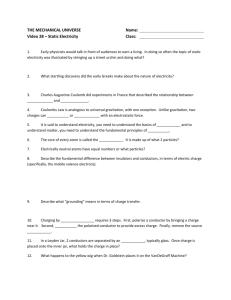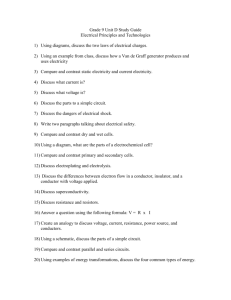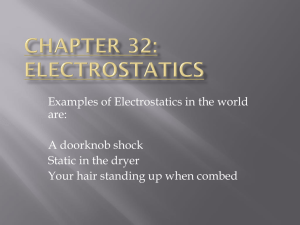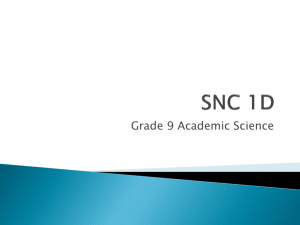physical science vocabulary
advertisement
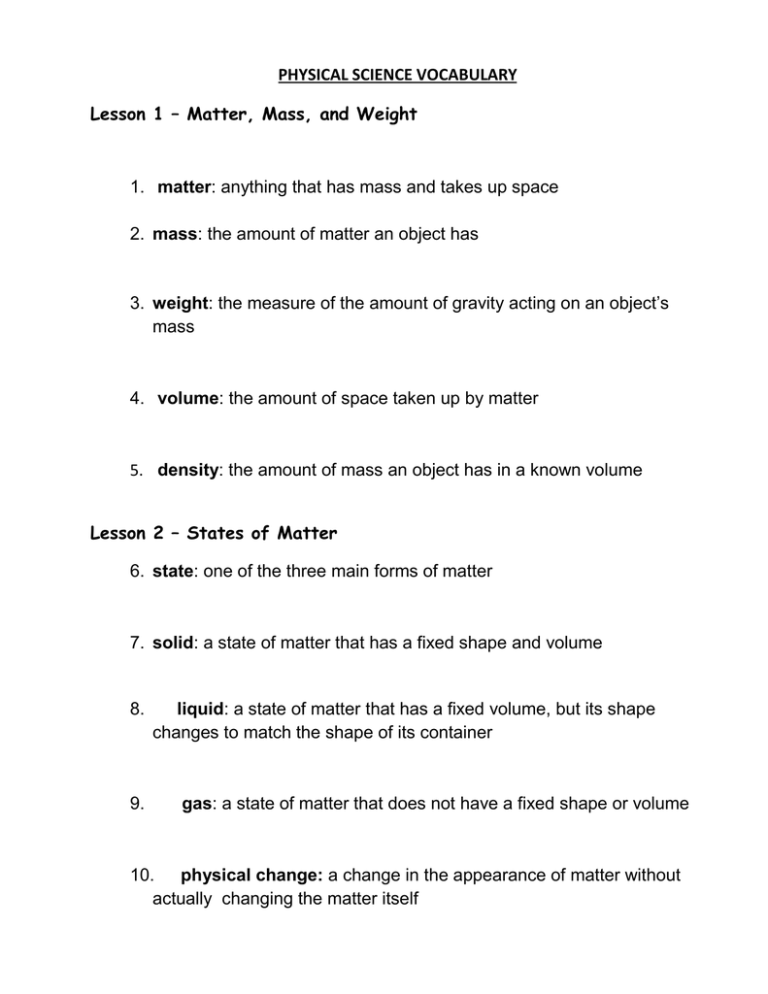
PHYSICAL SCIENCE VOCABULARY Lesson 1 – Matter, Mass, and Weight 1. matter: anything that has mass and takes up space 2. mass: the amount of matter an object has 3. weight: the measure of the amount of gravity acting on an object’s mass 4. volume: the amount of space taken up by matter 5. density: the amount of mass an object has in a known volume Lesson 2 – States of Matter 6. state: one of the three main forms of matter 7. solid: a state of matter that has a fixed shape and volume 8. 9. liquid: a state of matter that has a fixed volume, but its shape changes to match the shape of its container gas: a state of matter that does not have a fixed shape or volume 10. physical change: a change in the appearance of matter without actually changing the matter itself Lesson 3 – Physical Properties of Matter 11. physical property: a characteristic of matter that can be observed or measured and can be changed without changing the matter itself 12. property: a characteristic used to describe matter 13. texture: how a substance feels or looks 14. odor: how a substance smells 15. conductor: a substance that allows electricity to easily travel through it 16. insulator: a substance that does not let electricity pass through it easily 17. magnetic: a description of substances attracted to magnetic force 18. boiling point: the temperature at which a substance changes from a liquid to a gas 19. melting point: the temperature at which a substance changes from a solid to a liquid Lesson 4 – Mixtures and Solutions 20. mixture: a combination of two or more substances that do not join together to form a new substance 21. solution: a mixture in which the substances are spread out evenly between one another and cannot be told apart 22. dissolve: to form a solution with another substance 23. invisible: cannot be seen Lesson 5 – Force and Motion 24. force: a push or pull 25. motion: movement 26. friction: a force that works against motion 27. gravity: the force that pulls objects toward one another 28. inertia: the tendency of an object to resist a change in motion Lesson 6 – Light 29. light: a form of energy that travels in waves and can move through empty space 30. reflection: the bouncing back of light waves off of a surface 31. refraction: the bending of light waves as they travel from one surface to another 32. convex lens: a lens that is thicker in the center and thinner at the edges, a shape that bends light inward 33. concave lens: a lens that is thinner in the center and thicker at the edges, a shape that bends light outward Lesson 7 – Sound 34. sound: a form of energy produced by vibrating objects 35. vibrate: move back and forth rapidly Lesson 8 – Forms of Energy 36. energy: the ability to do work 37. solar energy: energy from the sun 38. kinetic energy: the energy of motion 39. potential energy: energy that is stored in an object Lesson 9 – Flow of Electricity 40. electricity: a form of energy produced inside particles of matter 41. current: the movement (flow) of electricity in a certain path 42. source of energy: where the energy comes from 43. conductor: a substance that allows electricity to easily travel through it 44. insulator: a substance that does not let electricity pass through it easily
